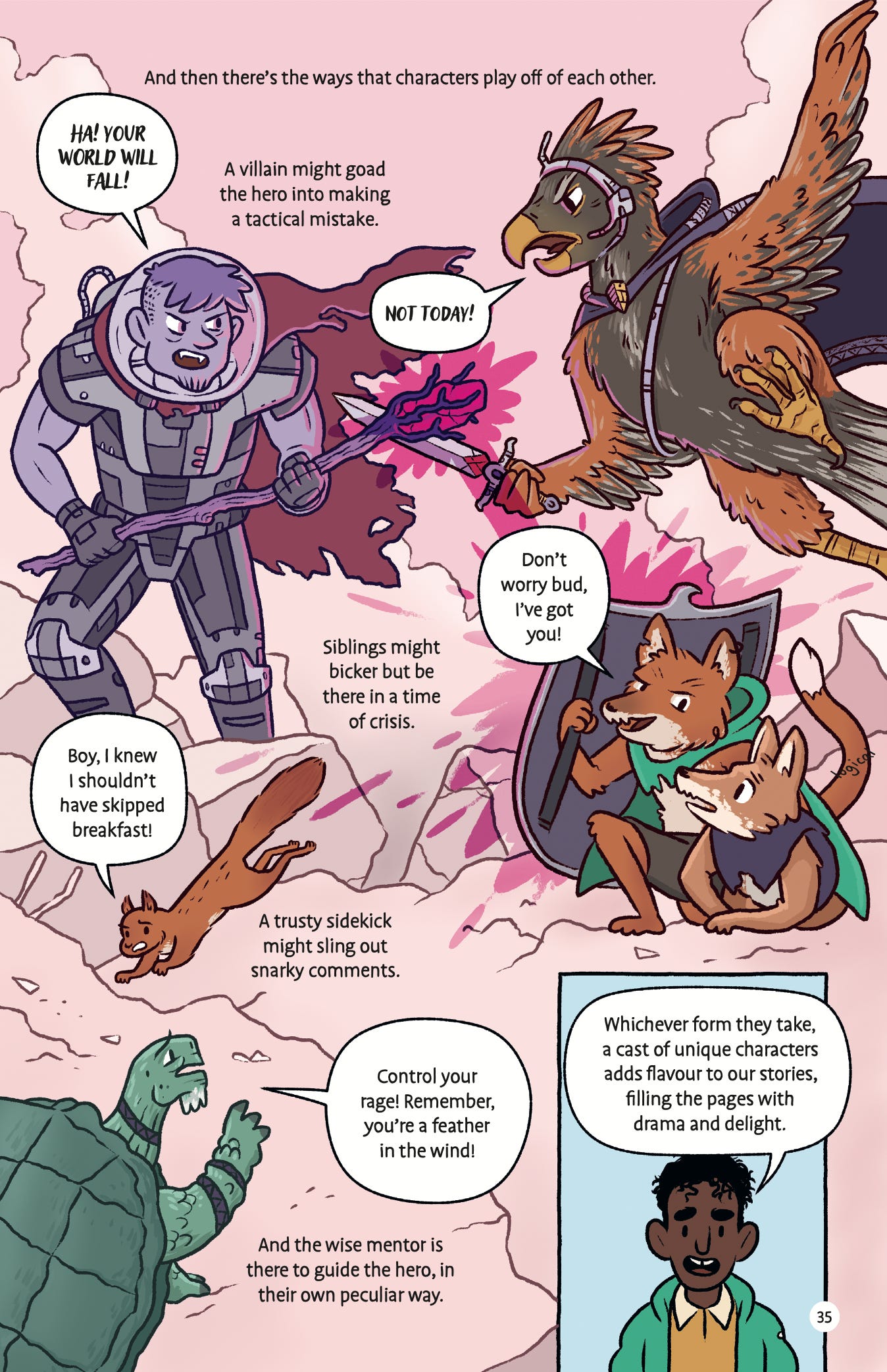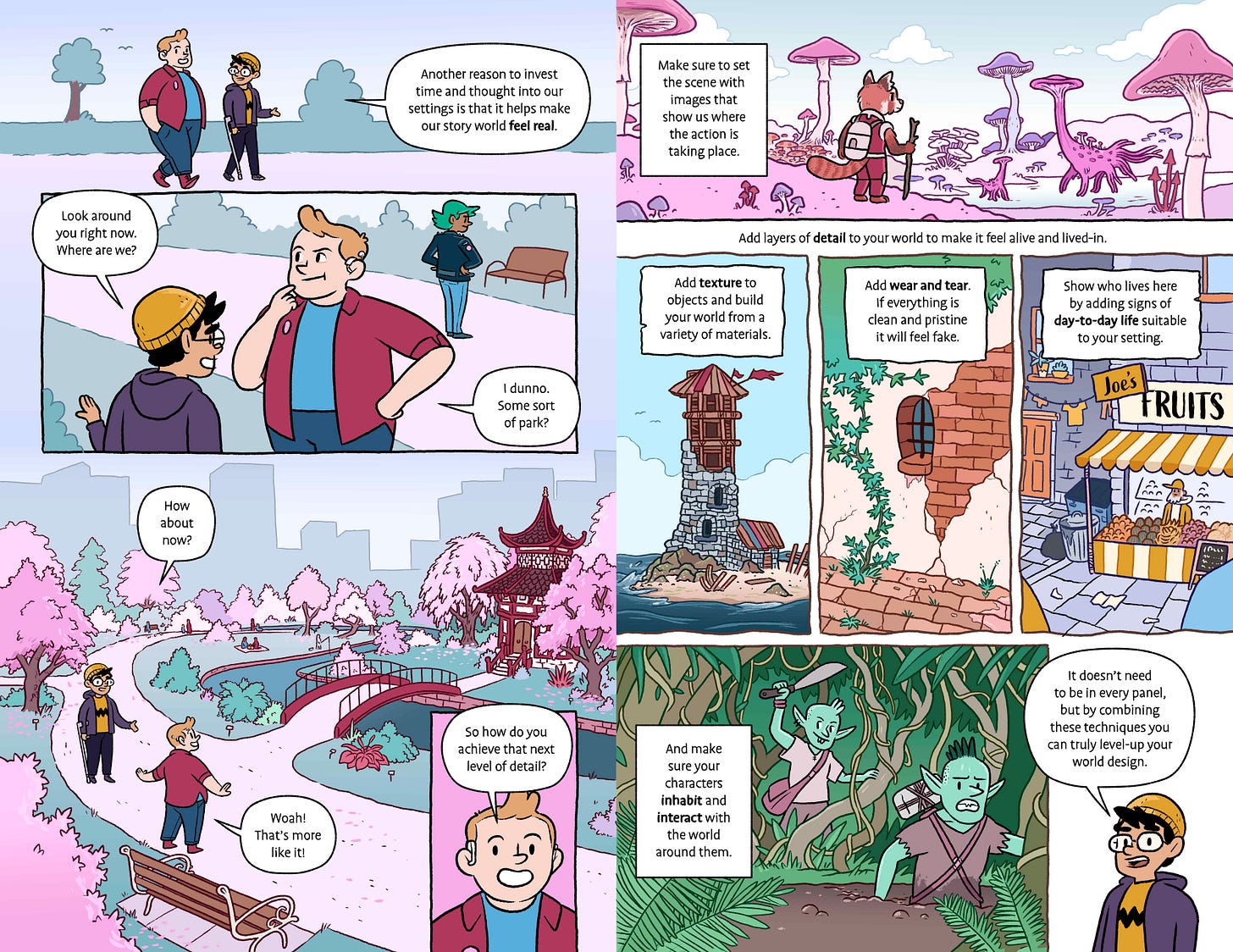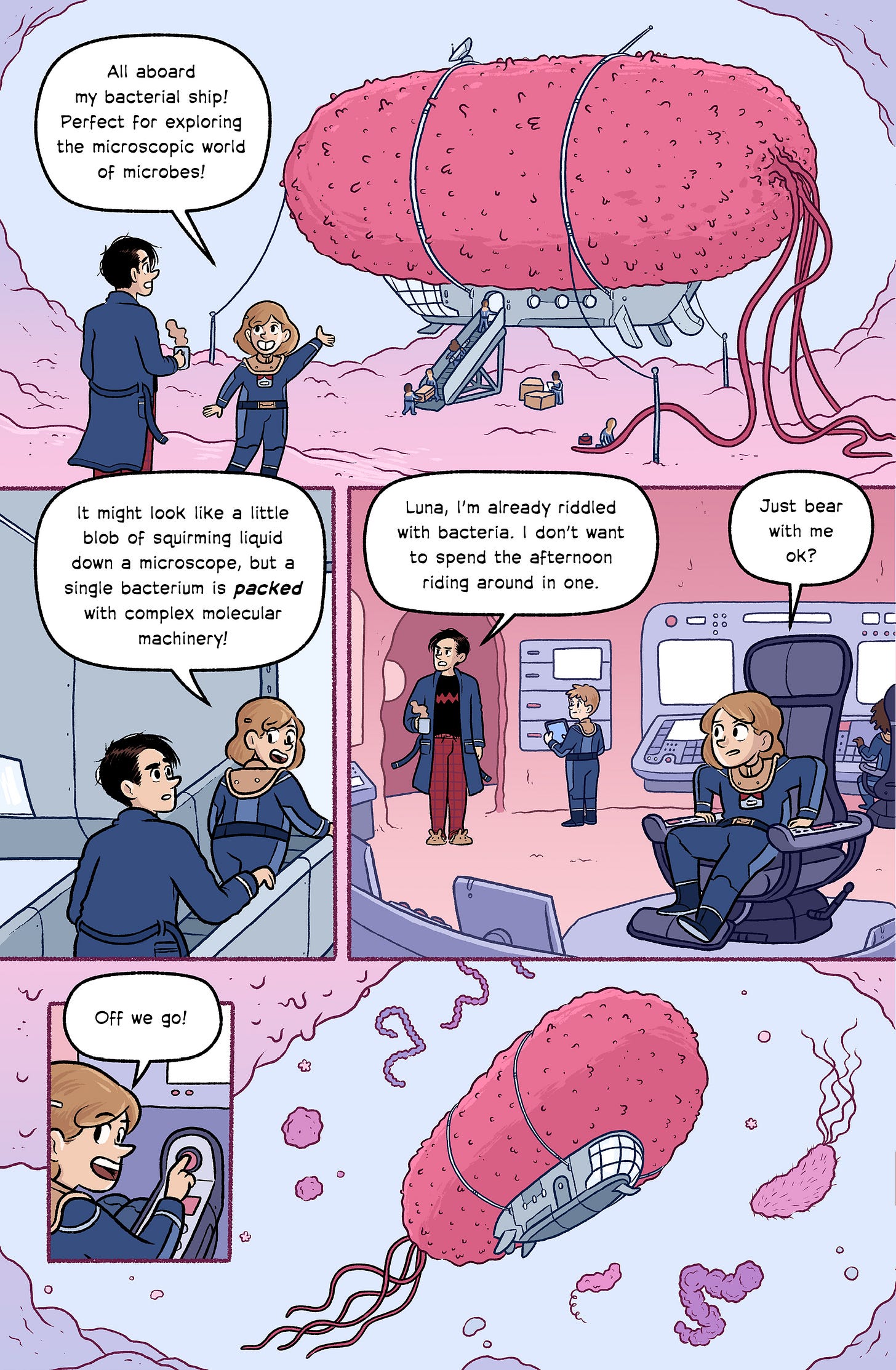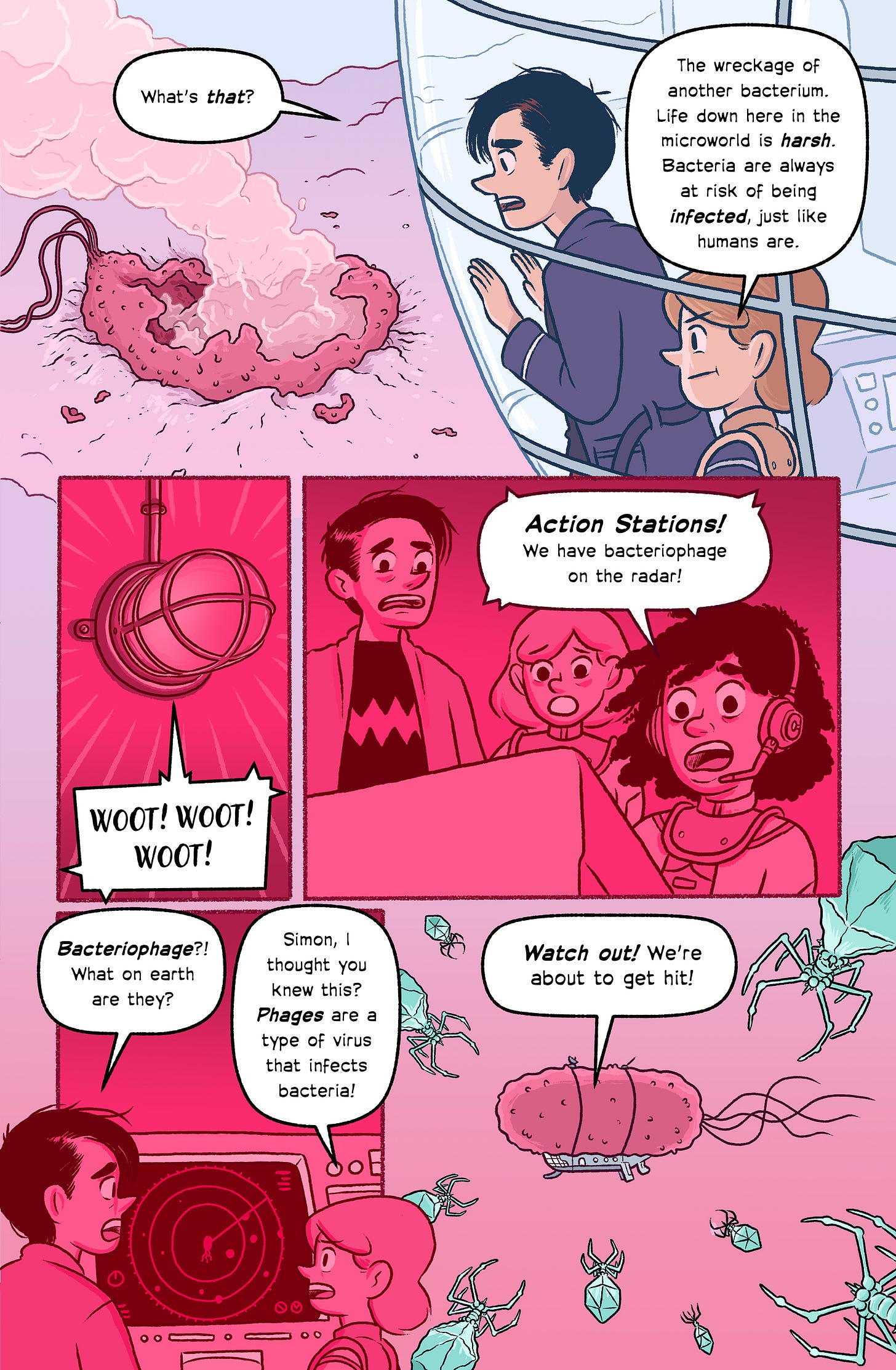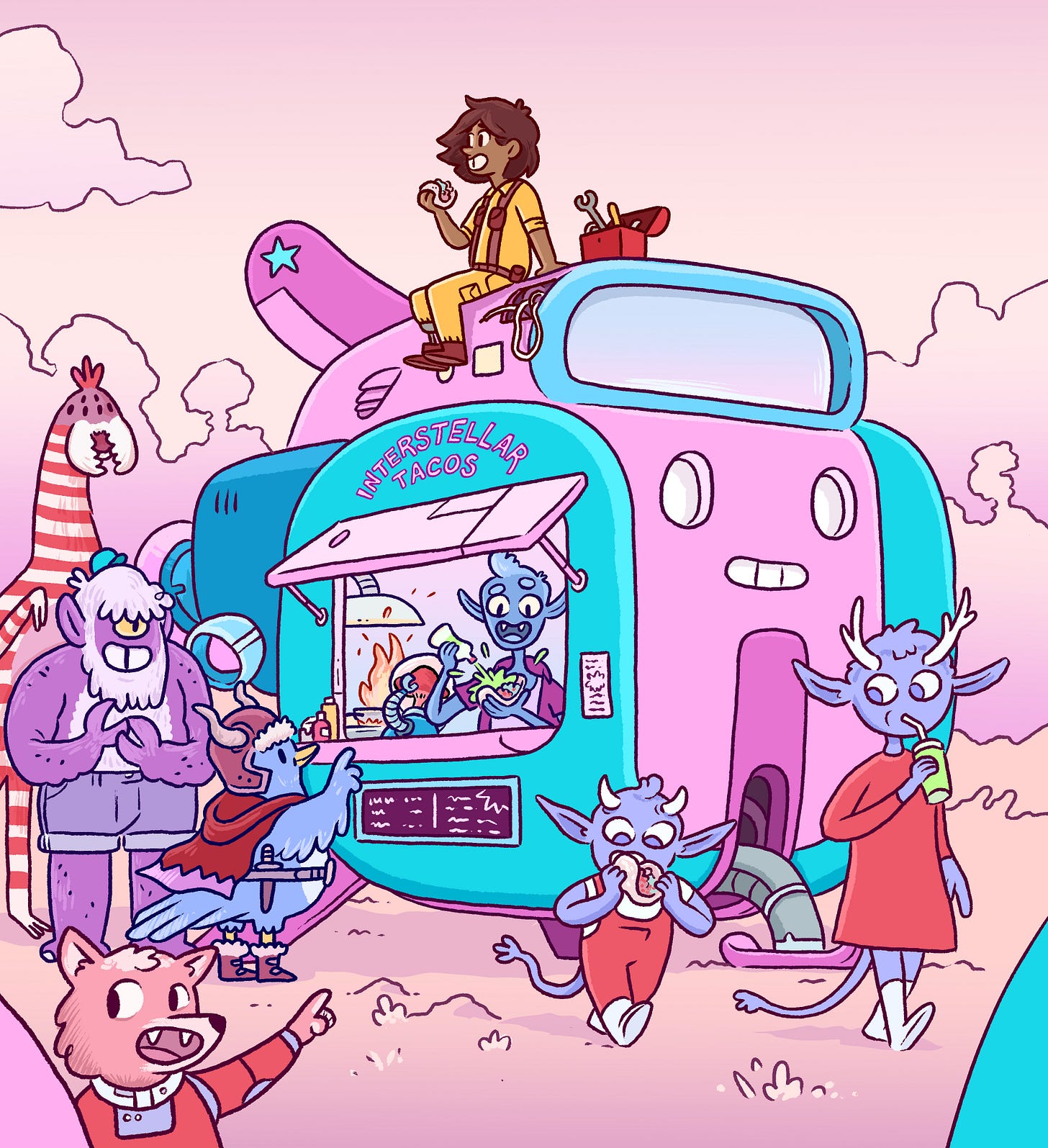Interview with Edward Ross
I’m trying to rediscover the sort of passionate goofiness that my earliest teenage comics had
I (Amaris) had the pleasure of meeting Edward Ross for a cappuccino in Edinburgh and chatting about the history and energy of the local comics scene, as well his work with local laboratories drawing scientific comics. In this interview, Ross discusses growing up with newspaper strip comics, drawing as kid, and now trying to recapture the playfulness of that early work.
Describe your comics journey—how did you get into making comics?
I was into comics from a young age, as my tattered collection of Calvin and Hobbes and Peanuts books will attest to. In Scotland we grew up with weekly kids comic anthologies like The Beano and The Dandy, as well as newspaper comics like Oor Wullie and The Broons which were both written in the Scots language. Scotland actually has a pretty proud history of comic creation, from the Glasgow Looking-Glass proto-comics of 1825 through to the founding of DC Thomson, who put out the above staples of British and Scottish kids comic culture.
All of which is a long way of saying I grew up surrounded by comics, and was inspired to make my own from about the age of 8 or 9. I still have those early efforts in a folder somewhere, bits of A4 paper stapled together and studiously filled with panels of cartoon animals.
I never really discovered American superhero comics until I was an older teenager, introduced to me by my girlfriend (now partner) along with a whole heap of indie comics. While Calvin and Hobbes had stayed the distance into my teenage years, the introduction to the wider possibilities of comics really got me reinvested in making comics again. What followed was a few years of teenage doodling in the margins of my school books, and a particularly cringe attempt to invent my own superhero (The Mime… a man who fought crime using the powers of mime, all set to grim lyrics from the Manic Street Preachers).
It wasn’t until after studying film at university that I took my first serious punt at actually putting work out there. I was working at an independent cinema, and took my twin passions of film theory and comic books to make “Filmish: Comic Book Essays on Film Theory.” These A5 black-and-white zines covered semi-esoteric topics in film theory, like food abjection or psychogeography, but all intended to be fun and readable for a non-specialist audience. The first print run of 100 copies got the ball rolling, and it turned out I’d accidentally created something kind of cool. I made a series of 4 different issues, and after a bunch of pitching to publishers, got the opportunity to make a book-length collection (Filmish: A Graphic Journey Through Film) with UK publisher SelfMadeHero in 2015.
I’ve since put another two books out: Gamish: A Graphic History of Gaming and Graphic Novel Builder: The illustrated guide to making your own comics. And along the way, I've worked a sideline in science engagement comics with science bodies and universities, translating research into approachable and entertaining mini comics designed to demystify topics like microbiology or climate research for the general public.
How did you develop your voice?
Since the start I’ve always been learning on the job when making comics. I never set out with any style in mind, and never put that much thought into how I went about drawing. It was just the way I drew. In a sense the drawing part started off very much as a utilitarian part of it—I wanted to draw because I enjoyed it, I wanted to write and draw about movies, and so I just had to do it… and all in the style that I had unconsciously developed over the years. Not the worst artist, certainly not the best; but good enough to get my ideas across in a scrappy, zine-y way.
In the last few years I’ve tried to be a bit more conscious about how I draw, and a lot of that has actually been to do with unlearning. With the Filmish and Gamish books I got increasingly wrapped up with trying to capture likenesses, getting perspective right, all that. And in that process, while I did get better at it, in hindsight my art just got a little more boring. One particularly brutal review I stumbled over recently called my art on Gamish ‘Wikihow’. Ouch.
So the journey now is toward embracing a little more chaos, a little more guessed perspective, and a little more life. I’m trying to rediscover the sort of passionate goofiness that my earliest teenage comics had—less worried about accuracy and more about fun. The ambition would be to look ‘effortless,’ and I’m constantly confronted with the fact that ‘effortless’ looking art normally is anything but.
What are some of the joys and challenges of making nonfiction comics?
On Filmish and Gamish absolutely the joy was getting to write about subjects that I just love. The research is a huge part of that, and on both projects I took the time to track down interesting sources, making use of the libraries here in Edinburgh to go beyond what the internet had on offer. There’s something very satisfying about digging an old issue of Variety out of an archive to double check a quote, and then finding something new; or making use of academic literature to uncover new ways of seeing your favourite movie or game. And that’s the stuff I want to bring back to my readers, and put it in a format that’s fun to access and learn from.
I think the biggest challenge meanwhile is the imposter syndrome of it all. Literally who am I to be writing a history of video games or cinema, when there are far more interesting and intelligent people out there who could be doing it instead. Again, I suppose, that’s where the personal comes in… making sure your work is something only you can tell, because it’s your passions and interests on the page.
Are you working on something now?
I’m currently going through a lot of pitching trying to get a publisher for my next book. It actually wears you out after a while, and I was so fed up recently that I decided to make my next pitch sample pages into a first issue of a comic. That way it can go out as pitch pages, but also I can self publish it and get some of that satisfaction of putting something out there in a more timely manner.
The comic is “Interstellar Taco Truck” and will hopefully be out as a first issue soon! It tells the story of two kids, stranded on the other side of the universe, who turn their crashed ship into a food truck so they can work their way home. It’ll be full of weird food, found family, and with a real focus on the healing power of good food.
Edward Ross is an Edinburgh-based comic artist. He is the creator of Filmish, Gamish and Graphic Novel Builder. He has also worked with various universities and research bodies to explore the science of everything from stem cell research to deep sea microfossils. He lives near the sea with his family and rescue dog Grace.
Learn more about Ross at his website and follow his work on Bluesky and Instagram.


